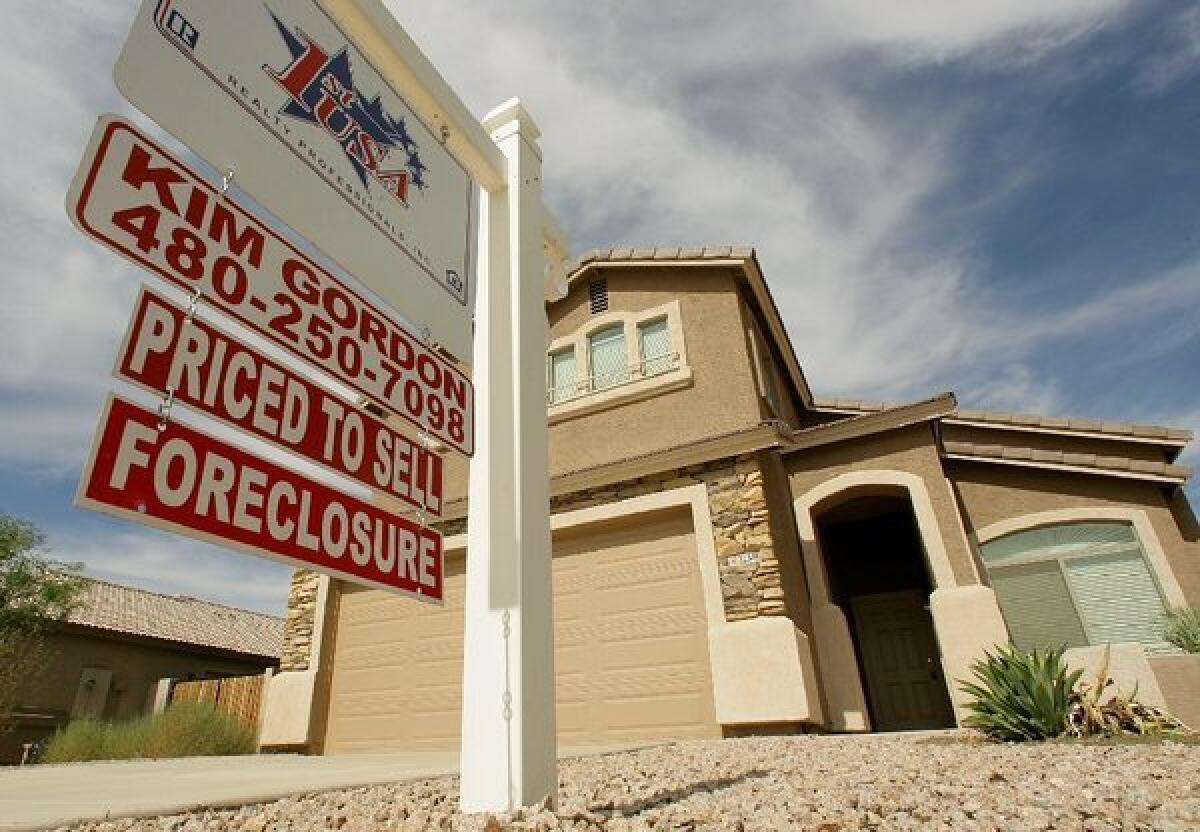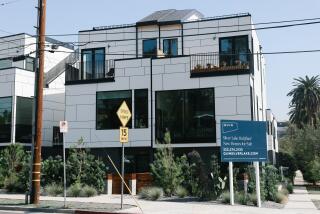Bad at math? Maybe you should pass on a subprime mortgage

Can you figure out how much a $300 sofa would cost during a half-price sale? If five people share the winning numbers for a lottery with a $2-million prize, can you calculate how much money will wind up in each winner’s pocket? If questions like these leave you flummoxed, economists have some advice: Do not get a subprime mortgage.
After analyzing the payment history on 339 subprime loans and measuring the “numerical ability” of those borrowers, the economists determined that people who have the most trouble with math were most likely to fall behind on their mortgages. They were also most likely to have the bank start foreclosing on their homes, according to a study published Monday in Proceedings of the National Academy of Sciences.
Plenty of research has identified other causes of the subprime mortgage meltdown, which triggered the worst global financial crisis since the Great Depression. Lenders were practically throwing money at borrowers without making any serious attempt to verify that they could make their loan payments. When these sketchy loans were repackaged into mortgage-backed securities, credit-rating agencies did not flag their risk. And an awful lot of people bet an awful lot of money that these securities were a good investment. They were wrong.
(To understand the intricacies of this, listen to an outstanding episode of “This American Life” called “The Giant Pool of Money” and/or read “The Big Short” by Michael Lewis.)
Three economists – Kristopher Gerardi of the Federal Reserve Bank of Atlanta, Lorenz Goette of the University of Lausanne’s economics department and Stephan Meier of Columbia University’s Graduate School of Business – were interested in another question related to the financial meltdown: “Why were so many borrowers willing to take out mortgages that they could not repay?”
The trio looked at loans taken out in 2006 and 2007, a particularly bad vintage for subprime loans. More than half of such loans wound up in default within five years, the economists noted. (For the sake of comparison, the same fate befell only 15% of subprime loans made earlier in the decade.)
The economists reached out to thousands of borrowers and asked them to take a survey to assess their math skills. A total of 339 agreed to take the five-question test, which included the two questions above. Other questions required a rudimentary understanding of percentages, such as: If 1,000 people have a 10% chance of getting a disease, how many people will get sick?
Borrowers were divided into four groups according to their numerical ability. Not surprisingly, poor results on the test went hand-in-hand with poor management of their mortgages. Specifically, borrowers in the group with the worst numbers sense were delinquent on their mortgage payments 25% of the time (on average), while those in the group with the best test scores were delinquent only 12% of the time (on average). The pattern was similar when it came to numerical ability (or lack thereof) and the incidence of foreclosure proceedings, the team reported.
These findings may have you saying, “No duh.” But the reason why an inability to do math would lead to foreclosure was not so obvious, the economists wrote.
Was it that people who were bad at math had less education, less income, worse credit and other socioeconomic characteristics that would make them more likely to default on their mortgages? No, according to the study. Taking these factors into account didn’t change the link between numerical ability and mortgage delinquency or foreclosure.
Was it that people who got bad scores on the rudimentary math test just aren’t as smart in general? To see whether this could be the explanation, the economists also gave borrowers a verbal fluency test that is closely correlated with IQ. But adding those results to the analysis didn’t change the results either. Ditto for a test that measured borrowers’ economic literacy.
“Mortgage deliquency seems specifically associated with [numerical ability], not with general IQ levels or economic literacty,” the economists wrote. (One interesting caveat: having a higher IQ didn’t prevent borrowers from falling behind on their payments, but if they did, having a higher IQ helped them find ways to avert foreclosure.)
Was it that people with less number sense agreed to worse mortgage terms, such as adjustable interest rates that could shoot up overnight? Apparently not: When the economists looked at the variability in borrowers’ mortgage terms and took the differences into account, the relationship between numerical ability and mortgage delinquency remained firm. Even borrowers with fixed-rate loans were more likely to fall behind on payments if they had lower scores on the math test.
The economists concluded that whatever was going on was happening after borrowers took out their loans. Perhaps the people who aren’t good at math simply spent too much and saved too little to keep up with their loan payments, they speculated. Or maybe they made other bad investments that left them unable to pay their mortgages.
The study results imply that placing new limits on the terms of subprime mortgages won’t necessarily keep borrowers from running into trouble if they just aren’t very good with math. On the other hand, efforts to boost financial education among borrowers could pay off if they help people make better decisions after the loans are made, the economists wrote.
The study is available on the PNAS website.
Return to Science Now.







